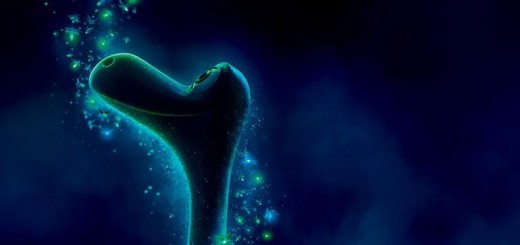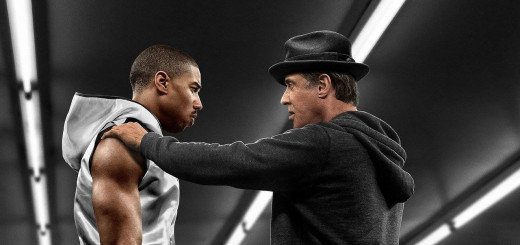THE BIG SHORT Review
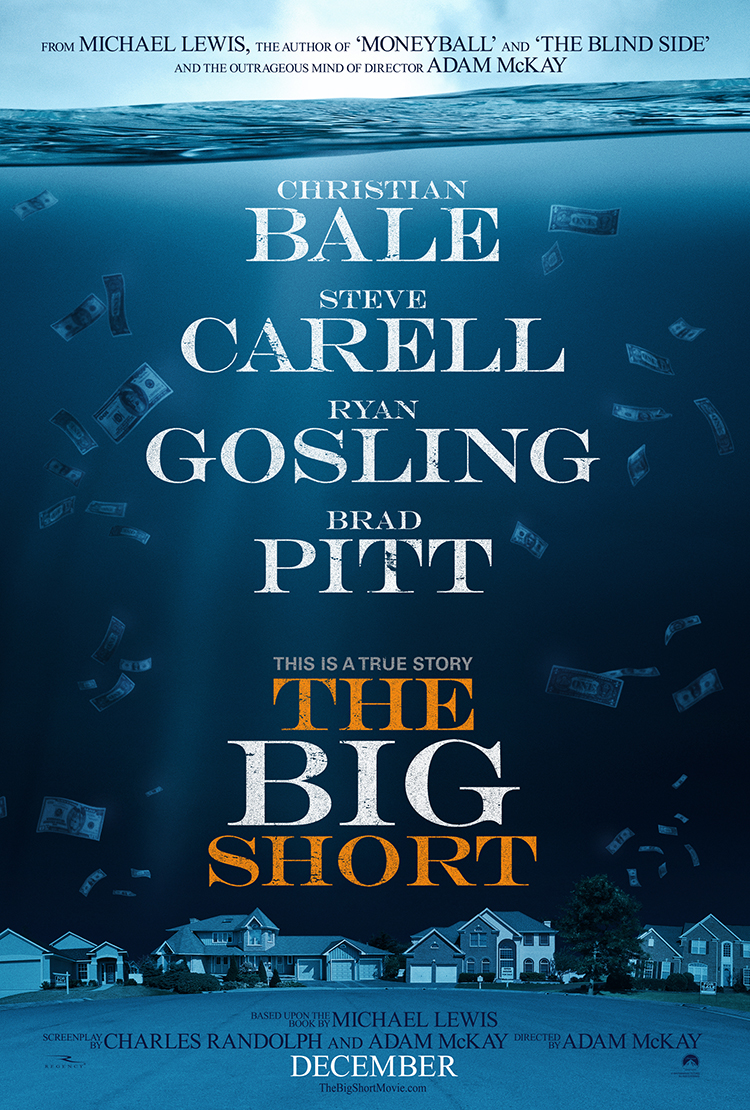
Director: Adam McKay
Genre: Drama, Comedy
Release: 2015
Back in 2005, Alex Gibney released ENRON: THE SMARTEST GUYS IN THE ROOM. Five years later, Charles Ferguson brought audiences INSIDE JOB. These documentaries dared to explore some of the most difficult topics of financial decline, and attempted to make this rather dry subject palatable to the common viewer. Successful or not, the fact of the matter remains that documentaries which try to enlighten viewers on how financial bubbles and firm corruption work are simply too difficult to market worldwide; regardless of how digestible they are, they still suffer the burden of being labelled as documentaries. Adam McKay’s THE BIG SHORT is arguably the solution to this problem. Doing its utmost to maintain complete verité, it toes a fine line between documentary and fiction in order to reenact a compelling, humorous but undeniably flawed depiction of the development of the 2007 housing bubble crash, and the select individuals who profited as a result. And although the film does almost everything right in the realm of authenticity, it disappointingly shies away from the corruption of many American banks, closing the film with images that seem to indirectly place the blame on Scottish and German organizations instead.
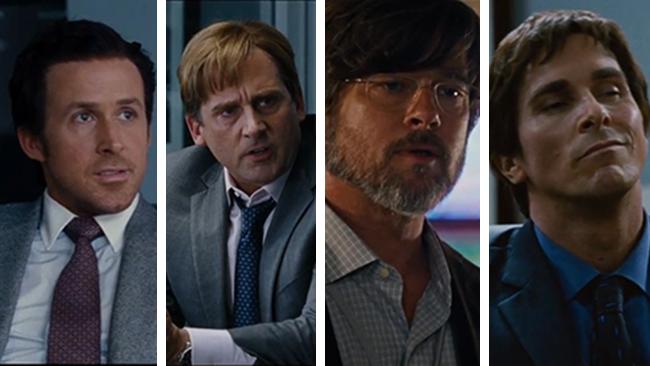
Putting the “douche” in Deutsche Bank
THE BIG SHORT’s tagline is “This Is A True Story,” and it does everything in its power to make this unequivocally clear. By breaking the fourth wall to briefly remind audiences of what really happened (an admittedly convenient plot device), THE BIG SHORT never lies to its audience, employing a postmodern narrative shorthand that allows for swift relaying of information in order to effectively propel the narrative without having the viewer get lost in corporate mumbo jumbo. To a large extent, this is THE BIG SHORT’s entire selling point. It capitalizes on star power to draw in viewership, and then flips the tables by presenting an immense amount of complex information that is astutely delivered by celebrity cameos ranging from Anthony Bourdain to Selena Gomez. It’s effectively brilliant and allows the film to uphold its purpose rather than compromise for the sake of narrative efficiency.
In form, McKay willfully plays with the tropes of a documentary film, and although many will immediately label THE BIG SHORT a comedy due to McKay’s success as a comedic director, it’s only a few talking head interviews away from being a follow-up to 2012’s THE IMPOSTER. The brilliance here lies in how McKay flirts with his genre trappings, employing imperfect focus pulls and photo montages in order to bridge the divide between narrative and documentary filmmaking. Having said that, the bold and often imperfect visual style results in an aesthetic that feels like something salvaged in post-production rather than a film that was great from the get-go. In addition to this, where McKay succeeds in expository propulsion, he fails in dramatic heft.
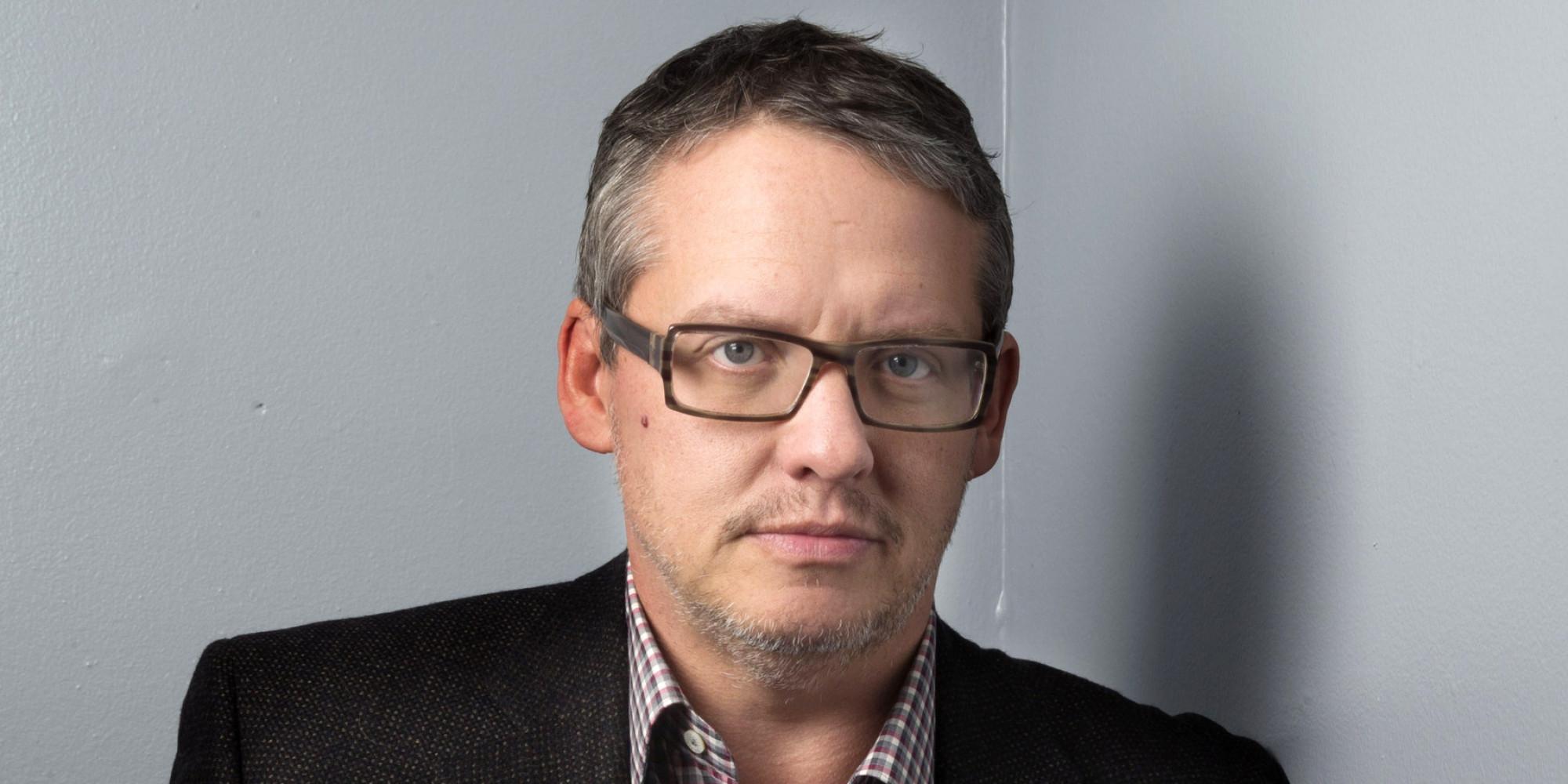
McKay’s Tinder Interests: ANCHORMAN, STEP BROTHERS, THE OTHER GUYS, and the financial crisis
The Achilles heel of THE BIG SHORT is located in the unlikeliest of places: its actors. Although assisted greatly by the charisma of its four A-list celebrities, none of these characters function as anything outside of catalysts for propelling the story towards another anti-bank exposition dump. However, this can’t be held too strictly against McKay’s film, because his intent ultimately lies in relaying all the information that his audience fell asleep to when watching documentaries on the same subject. Nonetheless, when compared to its investigative contemporary SPOTLIGHT, it doesn’t provide its protagonists with comprehensive character arcs, a surprising fact when considering that SPOTLIGHT avoids providing any detailed information on its characters’ backstories in the first place and succeeds nonetheless.
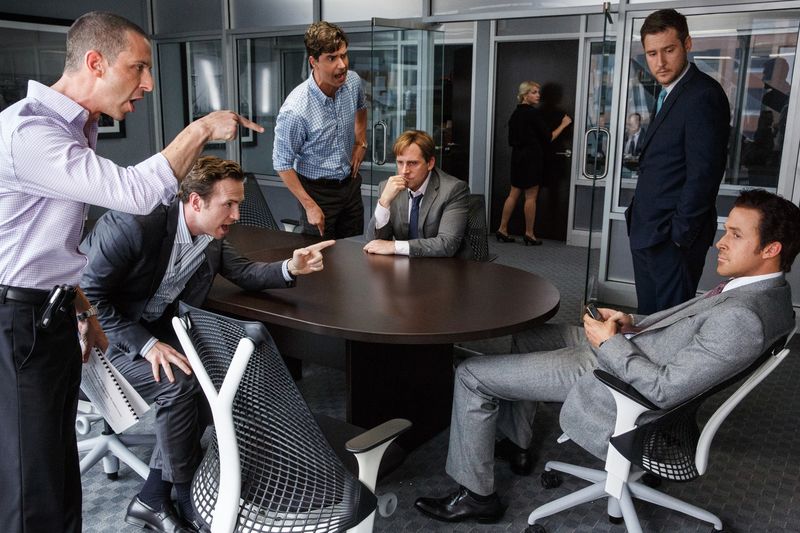
Carrell’s pondering of what to order at Cuvee necessitated several reshoots
Currently being hailed as a peer to Scorsese’s THE WOLF OF WALL STREET, THE BIG SHORT is rather comparable to documentaries on the subject of the financial crisis. It’s not as cinematically literate as Scorsese’s film, and isn’t ever quite as captivating due to its absence of any real internal conflicts. Instead, it’s a film about good people trying to screw over bad people, which is undeniably satisfying, but also dramatically vapid. Uninterested in the belligerence and depravity of exploitative individuals the way Scorsese’s film is, McKay celebrates the few people who had the courage to take a stand against corruption. By veiling a documentary under the umbrella of an ensemble comedy, THE BIG SHORT has capitalized on the undeniable fact that viewers hate hearing about how good people become poor, but love seeing protagonists become rich. It isn’t a masterpiece, but for anyone illiterate in the history of the financial crisis, it’s a fantastic place to start.
Verdict: Recommend

